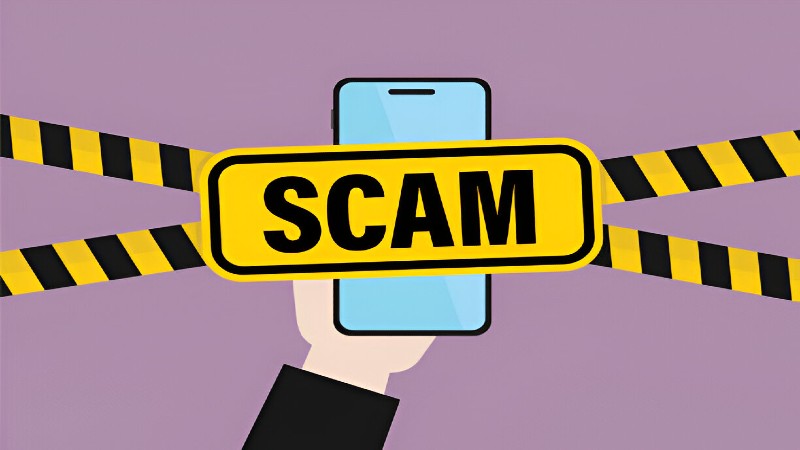
Are They Legit? How to Spot a Scam and Find the Safest Earning Apps
In the booming digital economy, the allure of making extra money from your smartphone is undeniable. From surveys and gig work to cashback and micro-investing, a new generation of money-earning apps promises to put cash directly into your pocket. However, for every legitimate opportunity, there are dozens of scams lurking, ready to exploit unsuspecting users. The fundamental question for anyone looking to capitalize on this trend is: Are they legit? How to spot a scam and find the safest earning apps?
The New Reality of Earning Apps
The digital marketplace is a double-edged sword. While it offers incredible convenience and new avenues for income, it also provides a fertile ground for scammers. They are masters of disguise, using sophisticated tactics to mimic legitimate companies and prey on people’s desire for financial freedom. A staggering number of people have lost money to fraudulent apps, making it more critical than ever to understand the psychology behind these schemes.
Understanding the Scammer’s Playbook
Scammers aren’t just looking for your credit card number; they are trying to manipulate your emotions. They rely on a few key psychological triggers to make you act without thinking:
- Urgency and Pressure: Scammers create a false sense of urgency with phrases like Offer expires in 5 minutes! or Limited membership available. This is designed to prevent you from doing your due diligence and researching the company.
- Social Proof: Fake testimonials, paid positive reviews, and cloned social media pages are used to create the illusion of a trustworthy community. They want you to believe that everyone else is doing it, so you should too.
- The Lure of the Easy Win: Promises of guaranteed, passive income or 10x returns with no effort are designed to appeal to our desire for easy money. If it sounds too good to be true, that’s because it almost always is.
Ten Telltale Red Flags of a Scam App
Spotting a fraudulent app requires a sharp eye and a healthy dose of skepticism. Here are the most common red flags to look for:
- Upfront Fees: Legitimate earning apps or gig platforms will never ask you to pay a fee to get started, receive a job, or access your earnings. Scammers often disguise this as a processing fee, insurance fee, or verification fee.
- Vague Promises and Unrealistic Guarantees: Be wary of apps that promise guaranteed income or no-risk investments with vague details on how the money is actually made.
- Lack of Credible Contact Information: A legitimate company will have a professional website with a physical address, a working customer support email, and often a phone number. A lack of transparent contact details is a major warning sign.
- Poorly Designed App or Website: Scammers often rush to market. Their apps or websites may contain frequent spelling and grammar mistakes, blurry logos, and inconsistent branding.
- Requests for Sensitive Information: No earning app needs your Social Security Number, bank account passwords, or personal ID to sign you up. They may require a bank account number for payouts, but this should be provided through a secure, encrypted process.
- Demands for Specific Payment Methods: A scammer may insist on untraceable payment methods like wire transfers, gift cards, or cryptocurrency to claim a prize or unlock funds.
- Aggressive Recruitment Model: If the primary way to earn money is by recruiting new people rather than selling a product or performing a service, you are likely looking at a pyramid scheme.
- High-Pressure, Unsolicited Contact: Scammers often reach out via social media, text messages, or email, claiming to be an expert and pushing you to sign up or invest immediately.
- Fake Check Scams: Some scams will send you a fake check and ask you to deposit it and then wire a portion of the money back to cover fees. The check will eventually bounce, and you will be responsible for the funds.
- Suspicious Links and Spoofing: Be extremely careful of links sent via text or email. Scammers use spoofing to make links look legitimate, but a closer look at the URL may reveal a typo or unusual characters.
A Step-by-Step Guide to Vetting Any Earning App
Don’t just look for red flags; actively investigate an app before you download it. Use this checklist to protect yourself.
- The Initial Screen: App Store & Reviews Start your investigation directly on the Google Play Store or Apple App Store. Read the reviews, but be critical. Are there a large number of generic, five-star reviews or a pattern of users complaining about not getting paid?
- Vetting the Company: Website & Social Media Does the company have a professional, well-maintained website? Check their social media presence. Is it active, or are there only a few posts with no user engagement?
- Scrutinizing the Offer: The Too Good to Be True Test Do the earning claims align with the effort required? An app that promises hundreds of dollars a day for playing games or watching ads is almost certainly a scam.
- The Final Check: Terms & Conditions and Payment Methods Read the Terms of Service. Are they clear about how you get paid, what fees exist, and how your data is used? Legitimate apps are transparent.
The Safest Earning Apps
Legitimate earning apps are transparent, have a clear business model, and are designed for long-term user retention. Here’s how they differ from scams.
| Feature | Legitimate Earning Apps | Scam Apps |
| Business Model | Clear and logical (e.g., ad revenue, commission, subscription) | Vague or relies on recruitment |
| Payouts | Consistent, predictable, and through secure channels | Unreliable, delayed, or require upfront fees |
| Reviews | A mix of good and bad, but with a general positive trend | Overwhelmingly fake positive reviews or mass complaints |
| Security | Secure payment gateways, encrypted data, and strong privacy policies | Ask for sensitive info, may be used for identity theft |
| Support | Responsive customer service and clear contact details | No support or only vague contact options |
Protecting Yourself Beyond the App
Your vigilance shouldn’t stop at the app itself. The best defense against digital fraud is a robust personal security strategy. Always use multi-factor authentication (MFA) on your accounts where available. Use a password manager to create and store unique, strong passwords for every app. Lastly, consider using a VPN when on public Wi-Fi to protect your personal data from being intercepted.
Conclusion
In conclusion, while the world of money-earning apps is filled with opportunities, it is equally a breeding ground for scams. By knowing the red flags, understanding the psychological tactics, and adopting a proactive vetting process, you can confidently determine: Are they legit? How to spot a scam and find the safest earning apps. Always remember: your digital safety is worth more than any quick-cash promise. Stay vigilant, stay informed, and trust your instincts.
Frequently Asked Questions (FAQs)
What are the most common red flags of a scam app?
Common red flags include requiring an upfront fee to join, promising unrealistically high returns with no effort, demanding payment via untraceable methods like gift cards, or having a poorly designed website with spelling errors.
Should I ever pay a fee to an earning app?
No. Legitimate earning apps and platforms do not require you to pay a fee to get a job, start earning, or receive a payout. Any request for an upfront fee is a major sign of a scam.
How can I verify if an earning app is legitimate?
Check for a professional website with clear contact information, read a wide range of user reviews on official app stores, and scrutinize the business model. A legitimate app will be transparent about how it makes money.
What is the difference between a real earning app and a pyramid scheme?
A real earning app’s primary function is to provide a service or product. A pyramid scheme, disguised as a business, makes money primarily by recruiting new members and collecting their fees, not by selling a product.
Is it safe to provide my bank account information to an earning app?
It can be, but only through a secure, encrypted process. You should never provide sensitive information like your bank account password or your Social Security Number directly to the app.
What should I do if I’ve been scammed by an app?
First, stop all contact with the scammers and do not send any more money. Report the scam to the Federal Trade Commission (FTC) and your local law enforcement. Keep all records of communication and transactions.
Why do some scam apps demand payment with gift cards or crypto?
Scammers use these payment methods because they are difficult to trace. Once a transaction is complete, it is nearly impossible to reverse or recover your money.












